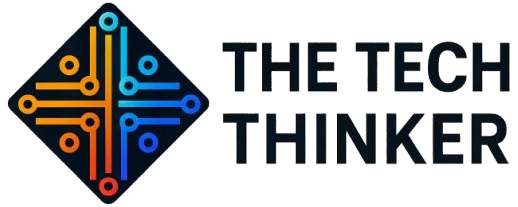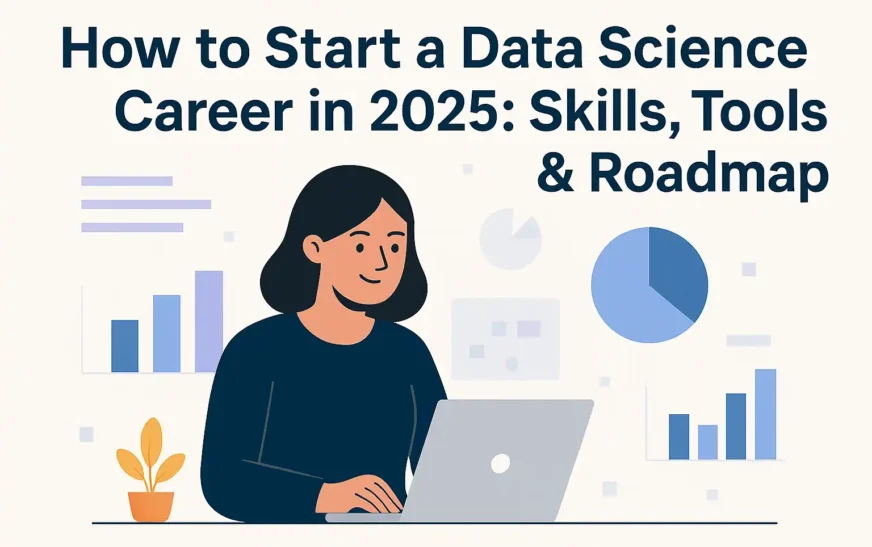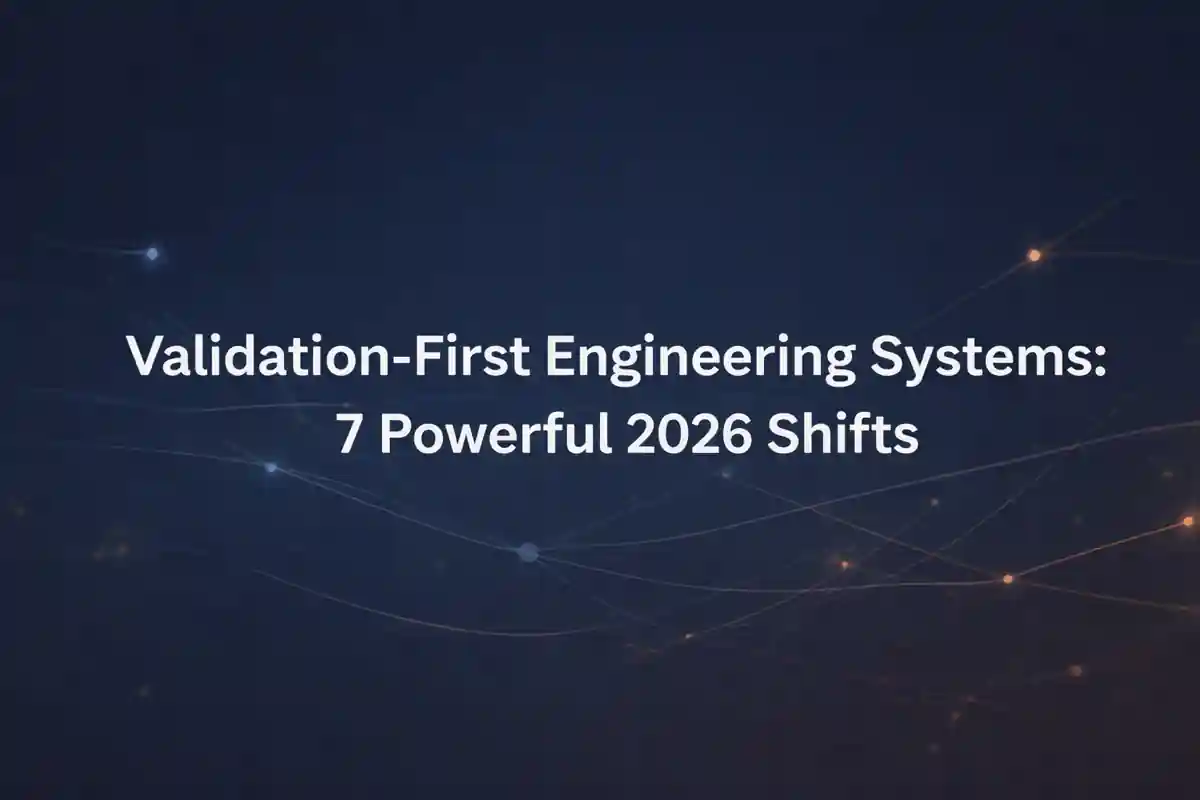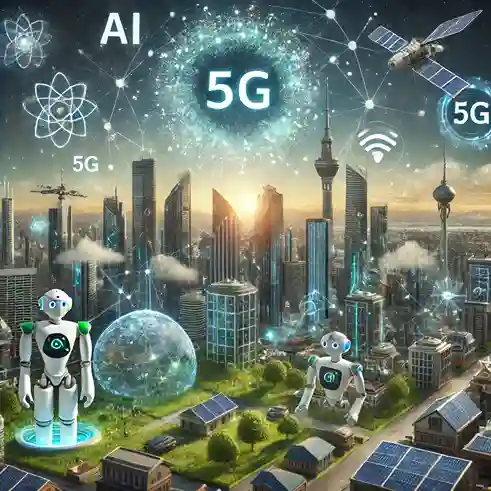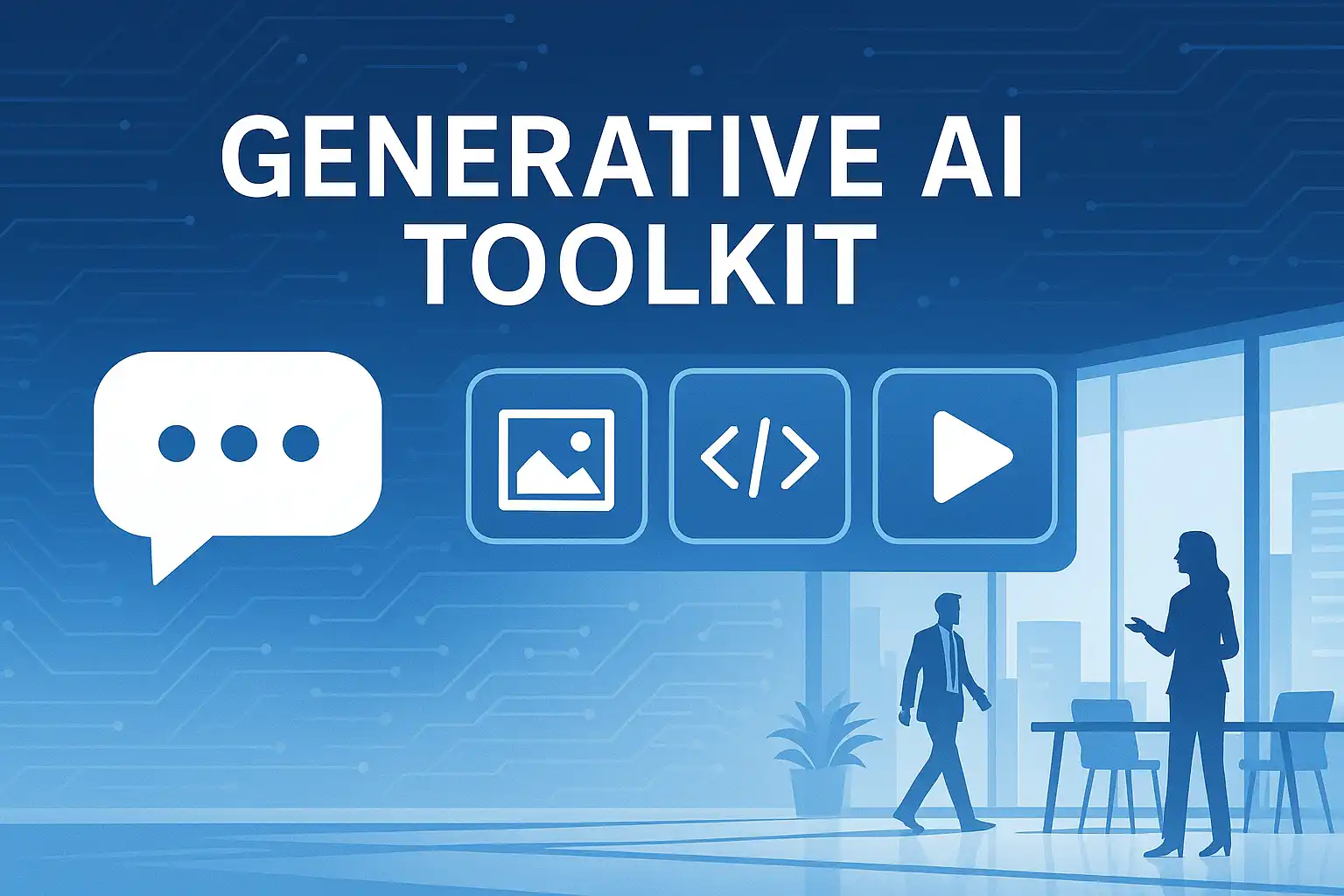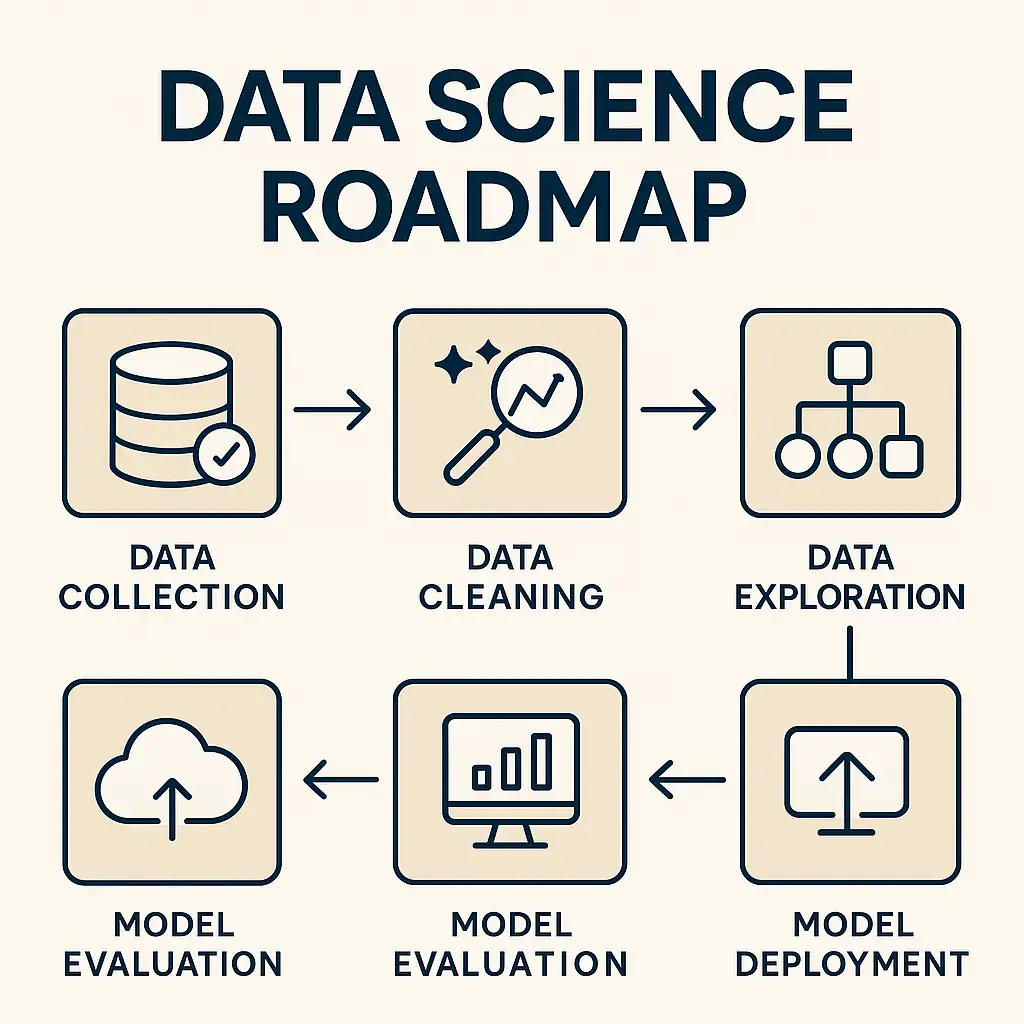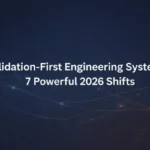Data Science Career in 2025
The world is drowning in data—and those who can make sense of it are in high demand. Whether you’re a student exploring your options, a software engineer looking to pivot, or someone aiming for a career upgrade, 2025 is the perfect year to start a data science career.
But the path isn’t just about completing online courses or memorizing algorithms. It’s about building real-world skills, choosing the right tools, and following a strategic roadmap that actually lands you a job.
This guide will show you how to do exactly that—realistically, without hype or shortcuts.
🚀 Why Choose a Data Science Career in 2025?
Every day, the world produces over 328 million terabytes of data—from your Google searches and YouTube history to hospital records and satellite images. Companies are racing to make use of this information, and data scientists are the key players in that transformation.
📈 Why now is the best time to start:
-
🧠 High salaries: Entry-level roles in India offer ₹8–20 LPA, while in the US, average salaries exceed $100,000.
-
🌍 Remote-friendly: Post-pandemic, companies across the globe are hiring data professionals regardless of location.
-
🎯 Multiple career paths: Data Scientist, ML Engineer, AI Product Manager, NLP Engineer—the field is broader than ever.
-
🔮 Long-term stability: Data isn’t going anywhere. If anything, it’s multiplying. So are the job openings.
More importantly, this is a career that lets you solve real problems—from predicting diseases to stopping financial fraud.
🎯 Skills You Need to Become a Data Scientist
If you’re serious about starting a data science career in 2025, focus less on memorizing buzzwords and more on mastering skills that solve real-world problems.
Let’s break them down:
🔧 Core Skills (Non-negotiables)
These are the absolute must-haves:
-
Python or R: Python is the most widely used language in data science. R is great for statistical analysis and academics.
-
SQL: No matter how fancy your ML model is, you’ll need SQL to extract, clean, and query data from databases.
-
Statistics & Probability: Understanding mean, median, standard deviation, distributions, Bayes’ theorem—these are the foundations of good analysis.
-
Excel: Still relevant, especially in roles involving reporting, dashboards, or quick analysis.
💡 Tip: Many interviews include SQL + Python + stats challenges before they even ask about machine learning!
🤖 Advanced Skills (Career boosters)
Once your basics are in place, build on them with:
-
Machine Learning (ML): Start with regression, decision trees, and move on to ensemble models like Random Forests and XGBoost.
-
Deep Learning (DL): Learn basics of neural networks and experiment with CNNs for image data or RNNs for sequences.
-
Visualization: Learn how to tell stories with data using:
-
Python tools: Matplotlib, Seaborn, Plotly
-
Business dashboards: Tableau, Power BI
-
💬 Soft Skills (Often underrated but critical)
Being technically strong isn’t enough. You must translate insights into decisions.
-
Problem-solving: Think from the business side first.
-
Communication: Explain your findings to non-technical teams.
-
Collaboration: Work with product managers, engineers, and stakeholders.
-
Business acumen: Know the “why” behind the “what”.
✅ Bonus: These soft skills often set you apart during interviews, even when competing with stronger technical candidates.
🛠️ Essential Tools for Data Science in 2025
You don’t need to master everything, but getting comfortable with the following tools will make your journey smoother.
🧰 Programming & IDEs
-
Jupyter Notebook – Great for experimenting with code + notes.
-
VS Code – Lightweight and customizable IDE.
-
Google Colab – Free GPU-powered notebooks in the cloud.
📚 Libraries & Frameworks
-
Pandas, NumPy – For data manipulation and numerical analysis.
-
Scikit-learn – The go-to library for traditional ML.
-
XGBoost, LightGBM – For optimized, scalable ML models.
-
TensorFlow, Keras, PyTorch – Deep learning frameworks with growing job relevance.
📊 Visualization Tools
-
Matplotlib/Seaborn – Good for statistical charts.
-
Plotly – Interactive dashboards.
-
Power BI/Tableau – Widely used in business analytics.
☁️ Cloud & Big Data
-
Google Vertex AI – Scalable ML lifecycle.
-
AWS SageMaker – Model training + deployment.
-
Apache Spark – For handling large datasets efficiently.
🔧 Pro tip: Learn 1 tool from each category well instead of dabbling in 10.
🗺️ Step-by-Step Roadmap to Start Your Data Science Career
🟢 Step 1 – Learn the Basics (Math + Python)
Start by:
-
Learning Python syntax, functions, and libraries like NumPy and Pandas.
-
Studying basic stats: mean, median, mode, variance, distributions.
-
Exploring simple problems like EDA (exploratory data analysis).
This sets your foundation.
🟡 Step 2 – Hands-on Projects (Kaggle, GitHub)
Theory without practice is a trap.
-
Use Kaggle datasets to explore real-world problems.
-
Apply EDA, visualizations, feature engineering.
-
Publish your code on GitHub—this becomes your living resume.
🎯 Aim for 3–5 strong projects like:
Sales Forecasting
Loan Default Prediction
Movie Recommendation System
🟠 Step 3 – Learn ML/DL (with small models)
Now that you’re hands-on:
-
Learn model types: regression, classification, clustering.
-
Train models using Scikit-learn.
-
Dip into deep learning with Keras—start with MNIST digits or image classification.
🔵 Step 4 – Build a Portfolio Website
Don’t just do great work—show it off.
-
Use GitHub Pages, Notion, or WordPress to host your portfolio.
-
Include project write-ups, visuals, and links to notebooks.
-
Add a section for blogs or explainers—it builds credibility.
🟣 Step 5 – Internships or Freelance Projects
Now, test your skills in the real world.
-
Try Internshala, Turing, or Upwork.
-
Participate in open-source or ML hackathons.
-
Connect with startups that need help with dashboards or data cleanup.
💬 Real-world experience matters more than another certificate.
🔴 Step 6 – Apply for Jobs or Certifications
By now, you’re job-ready.
-
Target entry-level roles: Data Analyst, ML Intern, Business Analyst.
-
Consider getting certified:
-
Google Data Analytics (Free)
-
IBM Data Science (Coursera)
-
Azure DP-100 – For cloud ML
-
🎓 Top Free & Paid Courses for Learning Data Science
| Platform | Course Title | Cost |
|---|---|---|
| Coursera | IBM Data Science Professional Certificate | Paid |
| edX | Harvard’s Data Science Program | Free/Paid |
| Great Learning | PGP in Data Science & Engineering | Paid |
| Google Data Analytics Certificate | Free | |
| Kaggle Learn | Python, Pandas, ML, SQL Courses | Free |
| YouTube Channels | Krish Naik, StatQuest, Ken Jee | Free |
❌ Common Mistakes to Avoid as a Beginner
-
Skipping SQL and database concepts
-
Avoiding visualization while focusing only on modeling
-
Collecting certificates with no GitHub projects
-
Copying code from tutorials without understanding
-
Not participating in communities or building a network
⚠️ Remember: You need to build, not just learn.
💡 Final Tips and Resources
-
Practice 30–60 minutes daily instead of once a week
-
Understand why models work, not just how to run them
-
Enter Kaggle competitions—even if you don’t win
-
Document your journey on LinkedIn or Medium
-
Join communities like:
-
Discord servers for AI/ML learners
🏁 Conclusion
To start a data science career in 2025, you don’t need to be a genius or have a PhD. You need the right strategy, the right mindset, and the consistency to follow through.
Take the roadmap in this guide and make it your own. Experiment. Fail fast. Learn faster.
Top 20 FAQ for Data Science Career (2025)
1. What is the best way to start a data science career in 2025?
The best way to start a data science career in 2025 is by mastering Python, statistics, and SQL, building real projects, and creating a strong online portfolio on GitHub or LinkedIn.
2. Do I need a degree to start a data science career in 2025?
No, many employers now value skills and projects over degrees. A portfolio with real-world datasets and certifications can be just as valuable.
3. Which programming language should I learn first for data science?
Python is the most recommended language to start a data science career in 2025 due to its simplicity and wide range of libraries like Pandas, NumPy, and Scikit-learn.
4. How long does it take to become a data scientist in 2025?
With consistent effort, you can start a data science career in 6 to 12 months by following a focused learning path and working on projects.
5. Can I start a data science career in 2025 with no coding experience?
Yes, but you will need to learn Python or R. Many resources are beginner-friendly and designed for people with no prior tech background.
6. What are the most important skills to start a data science career in 2025?
Key skills include Python, SQL, data visualization, statistics, machine learning, and soft skills like communication and critical thinking.
7. Is data science still a good career in 2025?
Absolutely. The demand for data scientists is growing, and companies across industries are hiring skilled professionals to handle data-driven decisions.
8. Which tools should I learn to start a data science career in 2025?
Jupyter Notebook, Google Colab, Pandas, Scikit-learn, Tableau, and cloud tools like AWS SageMaker or Google Vertex AI are essential.
9. What kind of projects should I build to land a data science job in 2025?
Start with classification, regression, clustering, or forecasting projects. Include visualizations, documentation, and real datasets from sources like Kaggle.
10. How do I build a data science portfolio in 2025?
Use GitHub to host your projects, write detailed READMEs, and share your work on LinkedIn or a personal website for recruiters to see.
11. Do I need to know deep learning to start a data science career?
Not initially. Focus on foundational ML first. Deep learning is a bonus if you’re targeting computer vision or NLP roles.
12. What certifications help in starting a data science career in 2025?
Recommended certs include:
-
IBM Data Science Professional Certificate
-
Google Data Analytics
-
Microsoft DP-100
-
Harvard Data Science via edX
13. Can I get a remote data science job in 2025?
Yes! Remote roles in data science are becoming the norm, especially with platforms like Turing, Deel, and Upwork connecting global talent.
14. How much can I earn when I start a data science career in 2025?
Entry-level salaries in India range from ₹8–20 LPA. In the US, beginners can earn between $90,000–$120,000 based on location and skillset.
15. Which are the best platforms to learn data science in 2025?
Top platforms include:
-
Coursera
-
edX
-
Great Learning
-
Kaggle Learn
-
YouTube (StatQuest, Krish Naik)
16. Is SQL mandatory for starting a data science career?
Yes. SQL is essential for working with structured data. It’s often tested in interviews and used daily in most DS roles.
17. Can non-technical professionals switch to data science in 2025?
Definitely! Many successful data scientists come from finance, business, or even biology backgrounds. Consistent learning and practice is key.
18. What are the best communities for aspiring data scientists in 2025?
Join:
-
r/datascience (Reddit)
-
DataTalks.Club
-
LinkedIn AI groups
-
Discord communities for learners
19. What are the common mistakes to avoid when starting a data science career?
Avoid:
-
Only watching tutorials without doing projects
-
Ignoring SQL and statistics
-
Skipping documentation
-
Focusing only on flashy deep learning
20. How do I stay updated in the data science field in 2025?
Follow newsletters (KDnuggets, Towards Data Science), attend webinars, read blogs, and participate in challenges on Kaggle.
🌐 External References
| Anchor Text | External Link |
|---|---|
| Google Data Analytics Certificate | https://grow.google/certificates/data-analytics/ |
| IBM Data Science Professional Certificate | https://www.coursera.org/professional-certificates/ibm-data-science |
| Microsoft DP-100 Certification | https://learn.microsoft.com/en-us/certifications/exams/dp-100/ |
| Kaggle Learn | https://www.kaggle.com/learn |
| Harvard Data Science on edX | https://pll.harvard.edu/subject/data-science |
| r/datascience Reddit | https://www.reddit.com/r/datascience/ |
| DataTalks.Club Community | https://datatalks.club/ |
🔗 Read these also:
- Best Programming Languages to Learn in 2025
- AI-as-a-Service (AIaaS): Powerful AI for Businesses 2025
- All About Data Science – Complete 2025 Roadmap to a High-Paying Career
